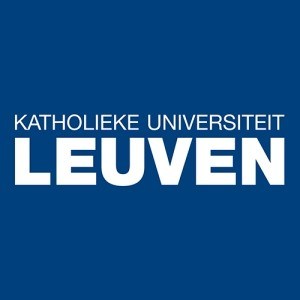Photos of university / #kuleuven
The Bachelor's degree programme in Biology at KU Leuven offers a comprehensive and in-depth exploration of the living world, integrating both theoretical knowledge and practical skills. This programme is designed to provide students with a solid foundation in the core disciplines of biology, including genetics, ecology, evolution, physiology, cell biology, and microbiology. Throughout the programme, students will engage in various laboratory exercises, fieldwork, and research projects that foster hands-on experience and critical thinking skills necessary for understanding complex biological systems. The curriculum emphasizes the importance of scientific methodology, data analysis, and experimental design, equipping graduates to pursue careers in research, environmental management, healthcare, education, and biotechnology sectors.
Students will have opportunities to specialize further through elective courses and optional minors, allowing them to tailor their education according to specific interests such as molecular biology, ecology, or biomedical sciences. By combining coursework with internships and research collaborations, the programme aims to prepare graduates for a wide range of professional paths or advanced study in master's or doctoral programmes. The programme also highlights sustainability, environmental issues, and the ethical considerations relevant to biological sciences, promoting responsible scientific practice. KU Leuven's vibrant academic environment, modern laboratories, and collaborations with research institutions ensure that students receive a high-quality education grounded in current scientific developments. Graduates of the Bachelor in Biology at KU Leuven will possess the analytical, technical, and problem-solving skills necessary for addressing contemporary biological challenges and contributing meaningfully to scientific advancement and societal well-being.
Common Core
- Advanced Biological Data Analysis
- Computational Biology
- Biology and Society
- Master's Thesis
Advanced Biology
Choose one of the two Tracks.
Follow 4 of the 5 courses (24 ECTS) of the chosen Track preferentially during the first stage.
Further incorporate courses from the other Track, the remaining course in the chosen Track, or courses from the below categories to obtain a total of at least 54 credits in Advanced Biology Courses. Compile your course list for the second master year in agreement with your thesis promotor!
Track: Ecology, Evolution and Conservation Biology
- Evolutionary Ecology and Eco-Evolutionary Dynamics
- Advanced Ecology
- Biogeography and Macro-ecology
- Ecological and Evolutionary Genomics
- Global Change, Ecosystems and Sustainability
Track: Molecular Biology and Physiology
- Plant Development and Metabolic Regulation
- Mechanisms of Signal Transduction and Cell Regulation
- Model Organisms in Biological Research
- Adaptive and Stress Physiology
- Molecular and Developmental Animal Physiology
Animal Physiology and Neurobiology
- Comparative Endocrinology
- Immunological Biotechnology
- Neurobiology
- Advanced and Applied Insect Physiology
- Critical Discussions in Molecular Biology and Physiology
Biodiversity
- Diversity of the Chordata
- Diversiteit van de invertebraten: Arthropoda
- Comparative and Functional Anatomy of the Chordata
- Diversity of the Vascular Plants
- Inleiding in de osteo-archeologie
Cell Biology and Genetics
- Advanced Topics in Molecular Genetics
- Molecular Cell Biology
Ecology, Evolution and Conservation
- Stress Ecology and Ecotoxicology
- Terrestrial Ecology
- Behavioural Ecology
- Freshwater and Marine Ecology
Molecular Microbiology and Plant Biology
- Molecular Interactions between Fungi and their Hosts
- Molecular Genetics and Biotechnology of Yeast
- Plant Molecular Biology and Biotechnology
- Critical Discussions in Molecular Biology and Physiology
Methodological Courses
- Geographic Information Systems
- Laboratory Animal Science
- Evolutionary and Quantitative Genetics
- Theoretical Modelling in Biology
- Advanced Fluorescence and Fluorescence Microscopy. From Single Molecules to Biological Systems
- Bio-informatics
- Livestock Genetics
- Behavioural and Advanced Ecology: Field Course
- Genome, Proteome and Metabolome Analysis
- Biosafety and Radioprotection
Elective Courses
- Entrepreneurship and New Business Development
- Dutch Language and Cultures
- Individual Practical Exercises
- Statistical Software
- Plant Physiology
- Univariate Data and Modelling
- Science Communication & Outreach
- Science and Sustainability
Requirements
- Bachelor of Biology
- Bachelor of Biochemistry
- Bachelor of Biotechnology
- Applicants with a Belgian diploma: these applicants do not have to take an English proficiency test.
- Applicants with a university degree earned in Australia, Canada, Ireland, New Zealand, United Kingdom or the USA: the certified diploma and transcripts suffice, provided they confirm that the entire university study was completed in English. Absolutely no other diplomas will be accepted as evidence even if the applicant has followed an exclusively English-taught programme.
- Other applicants should submit a satisfactory score on an internationally recognized test of English language proficiency: TOEFL (minimum score 94 internet-based with at least 19 for reading, 18 for Listening, 19 for speaking and 21 for writing) or IELTS (minimum score 7 overall, whilst at least 6,5 for reading, 6 for listening, 6 for speaking and 6 for writing).
- Certified copies of transcripts and diplomas are required for all applicants. These documents also suffice for applicants from
* universities that have an exchange agreement with the Faculty of Science of KU Leuven
* universities that are in the global top 200 in the most recent Times Higher Education or QS rankings - A complete list of course titles for which you have obtained a credit should be part of this. Indicate the course size (in ECTS-credits) and the result you obtained, preferably according to the ECTS-scale; if a different scale is used, please provide an summary explanation on the meaning of the scores.
- For the courses that you deem most relevant as a preparation for the master that you are considering, provide a short (about one half to one page) description according to the standard guidelines for an ECTS-study guide.
The financing of the Biology undergraduate program at KU Leuven is primarily supported through a combination of governmental funding, student tuition fees, and financial aid options. As a public university in Belgium, KU Leuven benefits from government subsidies that help offset the operational costs of degree programs, including Biology. Tuition fees for international students are determined annually by the university and vary depending on the student's nationality and residency status. For Belgian and EU students, the fees are generally lower, in line with national policies aimed at promoting accessible higher education. Non-EU students typically pay higher tuition fees, which are set to reflect the increased costs associated with international programs.
KU Leuven offers several financial aid opportunities to support students financially throughout their studies. This includes scholarships based on academic achievement, need-based grants, and other support mechanisms such as work-study programs. The university also provides information and assistance to students in applying for external scholarships from governmental or private sources, which can significantly ease the financial burden of studying.
Students are encouraged to explore the options for student loans and part-time employment to supplement their income during their studies. The university's career center provides guidance on part-time job opportunities and internships relevant to students' academic interests, including those in biological research and environmental work.
In addition to direct financial aid, KU Leuven offers detailed guidance on managing study costs, and some reduced-fee options are available for certain categories of students, such as students with disabilities or those from specific socio-economic backgrounds. All these funding options aim to promote equal access to education and support students in successfully completing their Biology degree.
Overall, KU Leuven's financing structure for the Biology program integrates public funding, tuition income, and various student support initiatives, in line with Belgium’s higher education policies focused on fostering accessible, high-quality scientific education.
The Biology program at KU Leuven provides students with a comprehensive foundation in the fundamental principles and diverse areas of biological sciences. The curriculum is designed to develop a deep understanding of living organisms, their structures, functions, and interactions within ecosystems. Students gain practical laboratory skills alongside theoretical knowledge, preparing them for careers in research, academia, environmental management, biotechnology, and healthcare. The program covers various disciplines, including molecular biology, genetics, ecology, evolution, physiology, and biochemistry, offering a multidisciplinary approach to biological sciences. Emphasis is placed on critical thinking, problem-solving, and experimental design, enabling students to contribute to scientific advancements and address global challenges such as biodiversity loss, climate change, and disease management. KU Leuven’s state-of-the-art laboratories and research facilities provide an excellent environment for hands-on experience and innovative research projects. Throughout the program, students are encouraged to engage in internships and international exchanges, fostering a global perspective in biological research. The degree prepares graduates for further academic pursuits or entry into the workforce across diverse sectors, including biotechnology companies, environmental organizations, healthcare providers, and educational institutions. The program also emphasizes the importance of scientific communication and ethical considerations in biological research. Overall, KU Leuven’s Biology program aims to cultivate knowledgeable, skilled, and responsible scientists equipped to contribute meaningfully to science and society.



